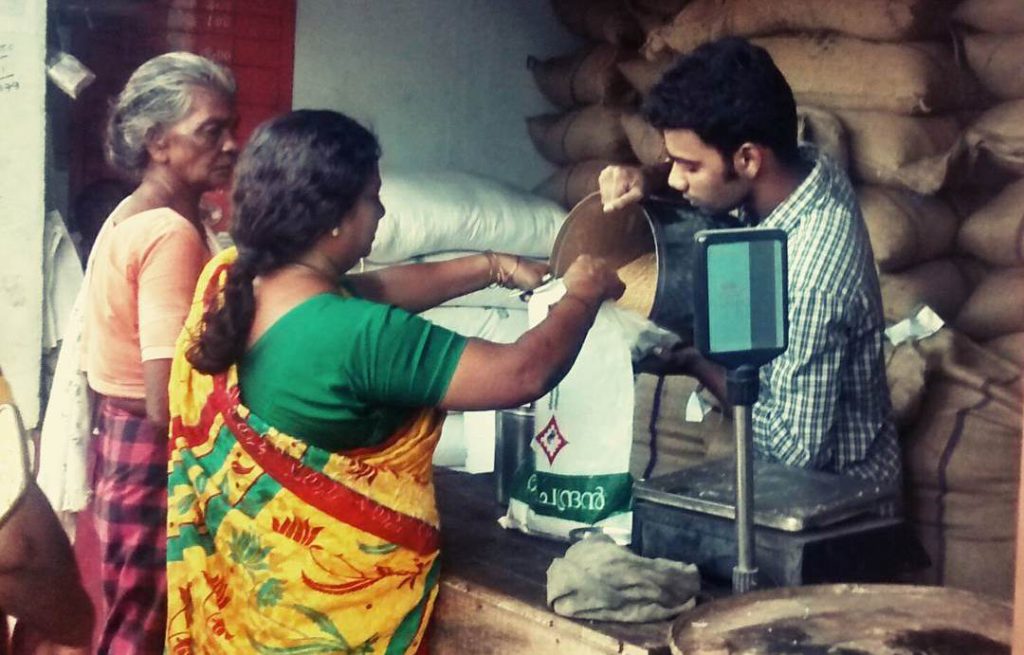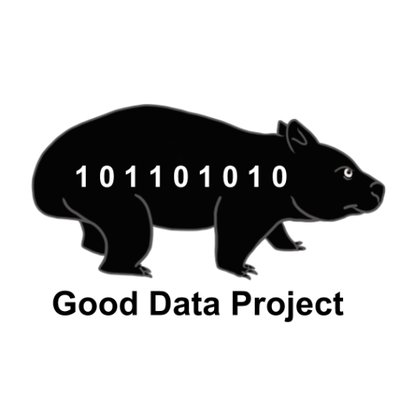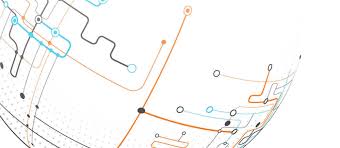This is already the last blog posts of the series ‘Designing the city by numbers? Bottom-up initiatives for data-driven urbanism in Santiago de Chile’, by Martín Tironi and Matías Valderrama Barragán. Please find here the first blogpost ‘Hope for the data-driven city‘ and the second ‘Digital quantification regimes of cycling mobility‘.
For our final post in this series, we explore the case of the social game for smartphones, KAPPO. It was developed in early 2014 by four Chilean entrepreneurs with the goal of engaging citizens with cycling. It is structured around levels in which each trip on the bike gives experience points, virtual coins and rewards to the player, and the highest level of the game is the “Capo”2. It also offers a series of challenges and rankings for competing with friends or other KAPPO players. Though this gamified design, KAPPO puts together a narrative focused on its ability to “provoke,” “motivate”, “create the habit” of regularly using the bicycle and improving the user’s health. As suggested by Kappo in one of its promotional ads, the app promises to “show the cyclist inside of you”.
Although KAPPO did not have great success in Chile initially, it started to grow in adopters abroad in other countries, receiving funds and making public-private partnerships with municipalities in Denmark. Since then, its founders sought to position the app as “more than a game” for smartphones, seeking out different ways of capitalizing on the data generated through its use. For example, KAPPO would develop a competition event called “Cool Places to Bike” where organizations compete on the grounds of which best encourages the use of the bicycle measured by KAPPO. It also developed “Health and Well-being Programs” for companies, promising to improve productivity and well-being of workers by increasing bike use through the use of KAPPO. Local governments have also become KAPPO clients through the development of “KAPPO Insights”, a web platform which allows public planners and officials to process and visualize anonymized routes tracked by the app to decision-making.
The data obtained by KAPPO, however, present biases and is not representative of cyclists of Santiago. Instead of emphasizing the scientific narrative of RUBI regime, the narrative deployed by KAPPO is one that aims to convince city officials based on three aspects: an inexpensive method, data capture in real time, and allowing a “strong” participatory citizen involvement that encourages bicycle use. Via such aspects, KAPPO’s analytics and flow maps acquire value and foster decision making that modifies the city in a rapid, experimental cycle, guided by the “real” movements of cyclists gathered in non-declarative ways. KAPPO thus does not seek to measure and quantify cyclists’ mobility representatively like RUBI, but seeks to intervene directly by encouraging greater bike use, and presenting increases in cycling statistics biannually in order to legitimate this digital quantification regime.
The politics of digital quantification: Some points to an open debate
With these very brief vignettes of digital quantification regimes developed in Latin America, it is interesting to note how initiatives like KAPPO and RUBI that are born in the South and adopt a grammar of citizen participation, also try to differentiate themselves from competing foreign technologies. But they nonetheless end up replicating the rationalities and logics of nudge and automation when they try to escalate to the global market to survive as technological entrepreneurship, diminishing at once the possible capacity of activism or citizen engagement in the planning processes. This opens up a debate around the actual political capacities of sensors and tracking technologies to enhance citizen participation and the agendas behind its developers.
Second, it is relevant to consider the different specificities of each regime of digital quantification. Each regime design and mobilises materialities, narratives and economic interests in order to justify their databases, algorithms and analytics as the most convenient, objective or useful for knowing, planning and governing the city in a data-driven way. As a result, the ecology of quantification regimes is always heterogeneous, diverging and relating to their contexts and interests, and combining various technologies of justification (beyond the device or app). From this perspective, we found interesting elements on the goals of each regime and their capacities. For example, KAPPO exacerbated the participatory or citizen nature of the app under a commercial logic from its inception. By contrast, the RUBI regime initially emphasized participatory and bottom-up elements but the agency of cyclists was gradually displaced by more automated designs to obtain “scientifically correct” data. They also try to differentiate from other methods like surveys and devices, both digital and analogue, invoking limitations and biases. In short, capitalizing on digital data requires various strategies of justification (Bolstanski and Thévenot, 2006) that should not be taken for granted and that goes beyond the generation of data alone. Before going into a priori definition of digital data, users or urban space, it is crucial to delve into these strategies and interests, as well as the reasons on why some regimes of digital quantification end up prevailing, whereas others are ignored.
Third, despite the discrepancies between the cases analysed, we note that both cases start from a shared imaginary of data-driven city governance inspired by the North. In this imaginary, opening and sharing data on the mundane practice of riding a bicycle is invoked as a means of empowering citizen involvement with the capacity to make the city smarter and more bike-friendly. However, this imaginary can lead, first, to a reconfiguration of government as “clients of data” and citizen participation towards more passive, invisible versions that are free of true effort, and in which the exchange of data and is used for the benefit of certain stakeholders with interests other than democratic ends. Before turning cyclists into “co-designers” or “participants” in city planning, they are situated in practice as data producers without ever being informed of the real use of the data generated in a government decision or other use by third parties. And the process of automation of the devices or gamify the design of devices is in direct connection with these forms of participation. This point leave us with the question on which other responses for everyday breakdowns and idiotic data could be enacted to promote an active digital activism. And also, which modalities of experimentation allow for the consideration of those imperceptible murmurs that tend to be marginalized from the prevailing cannons of smart culture3?
Fourth, a data-driven planning and governance initiative opens up the discussion of how notions of “expertise” and “politics” are reconfigured. These regimes of digital quantification promote the belief that the decision-maker, without necessarily being an expert on the topic, can make decisions in a primarily technical manner driven by the “real” behaviour of the citizens and not by opinions, ideological differences or party pressures. Political factors are framed as something that must be eradicated through the gathering and processing of data on people’s behaviour. This politics of technify-ing decision-making is nothing new. As Morozov (2014) has written, the idea of an algorithmic regulation evokes the old technocratic utopia of politics without politics: “Disagreement and conflict, under this model, are seen as unfortunate byproducts of the analog era – to be solved through data collection – and not as inevitable results of economic or ideological conflicts.”
In this sense, a data-driven urbanism would carry the risk of believing not only in a neutrality or immediacy of data, but with it a depoliticization of urban planning and government in favour of technocratic and automated decision-making systems. Behind the apparent technical reduction of discretion in decision-making by these regimes of digital quantification, in practice, we can see how many political or discretionary decisions are made in how these regimes are enacted and made public.
References
Boltanski, L., & Thévenot, L. (2006). On justification: Economies of worth. Princeton University Press.
van Dijck, J. (2014). Datafication, dataism and dataveillance: Big Data between scientific paradigm and secular belief. Surveillance & Society, 12(2), 197-208.
Espeland, W. N., & Stevens, M. L. (2008). A sociology of quantification. European Journal of Sociology/Archives Européennes de Sociologie, 49(3), 401-436.
Esty, D. C. & Rushing, R. (2007). Governing by the Numbers: The Promise of Data-Driven Policymaking in the Information Age. Center for American Progress, 5, 21.
Gabrys, J. “Citizen Sensing: Recasting Digital Ontologies through Proliferating Practices.” Theorizing the Contemporary, Cultural Anthropology website, March 24, 2016.
Goldsmith, S. & Crawford, S. (2014). The responsive city: engaging communities through data-smart governance. San Francisco, CA: Jossey-Bass, a Wiley Brand.
Goodchild, M. F. (2007). Citizens as sensors: The world of volunteered geography. GeoJournal, 69(4), 211-221.
Kitchin, R. (2014b). The Data Revolution: Big Data, Open Data, Data Infrastructures and Their Consequences. London: Sage.
Mares, N. (2018). What if nothing happens? Street trials of intelligent cars as experiments in participation. In S. Maassen, Dickel, S. and Schneider, C. H. (Eds), TechnoScience in Society, Sociology of Knowledge Yearbook. Nijmegen: Springer/Kluwer.
Mayer-Schönberger, V. and Cuckier, K. (2013). Big Data: A revolution that will transform how we live, work, and think. New York: Houghton Mifflin Harcourt.
Morozov, E. (2014). The rise of data and the death of politics. The Guardian. https://www.theguardian.com/technology/2014/jul/20/rise-of-data-death-of-politics-evgeny-morozov-algorithmic-regulation
1. This text is based on a presentation at the Workshop “Designing people by numbers” held in Pontificia Universidad Católica in November 2017.
2. Colloquial term in Spanish for people with a great deal of expertise or knowledge about a topic or activity.
3. On this point, see the controversies and public issues generated by the street testing with driverless cars (Marres, 2018)
About the authors: Martín Tironi is Associate Professor, School of Design at the Pontifical Catholic University of Chile. He holds a PhD from Centre de Sociologie de l’Innovation (CSI), École des Mines de Paris, where he also did post-doctorate studies. He received his Master degree in Sociology at the Université Paris Sorbonne V and his BA in Sociology at the Pontifical Catholic University of Chile. Now he’s doing a visiting Fellow (2018) in Centre of Invention and Social Proces, Goldsmiths, University of London [email: martin.tironi@uc.cl]
Matías Valderrama Barragán is a sociologist with a Master in Sociology from the Pontifical Catholic University of Chile. He is currently working in research projects about digital transformation of organizations and datafication of individuals and environments in Chile. [email:mbvalder@uc.cl]









